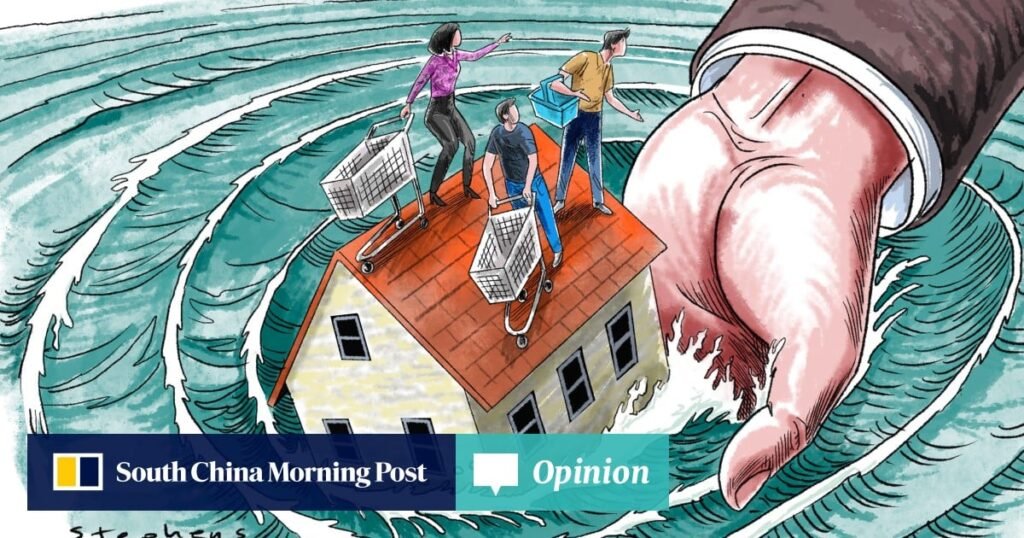The first was that annual gross domestic product (GDP) growth in July slowed to 4 per cent. This came after it had already slowed to 4.7 per cent in the second quarter of the year.
Second, private investment in the first seven months of the year registered zero growth – indicating a lack of investor confidence. While industrial output increased by 5.1 per cent in July compared to a year ago and fixed-asset investment was up 3.6 per cent, these increases were lower than expected and also lower than in the first half of the year.

As for the property debt crisis, the Chinese authorities should take a leaf from the United States’ Troubled Assets Relief Program (TARP) launched at the height of the global financial crisis in 2009. The programme was a vehicle for the US Treasury to inject US$426.4 billion in systemically important financial institutions in return for preferred shares. The Treasury eventually recouped US$441.7 billion when it disposed of those shares.
TARP not only recapitalised the banks that received the equity injections, it also restored confidence in the financial system and laid the foundations for a broader economic recovery. By 2010, the US economy was growing at a healthy clip again.
By contrast, China’s property debt crisis shows no signs of abating. Property investments fell by 10.2 per cent in July compared to a year ago, after falling by 10.1 per cent in the first half of the year.

It is hardly surprising that the Chinese rescue plan isn’t working. First, the size of the rescue fund is too small relative to the size of the problem. Goldman Sachs has estimated that the government would need to spend 7.7 trillion yuan, buying housing inventory at half the market price.
Second, the design of the plan is also flawed. The 300 billion yuan fund provides only 60 per cent of loans; commercial banks must still cough up 40 per cent. If the loans turn bad, banks would still bear a sizeable share of the losses. This explains the reticence on the part of banks.
Above all, the reason TARP worked was that it was not used to purchase troubled assets but, rather, to inject equity into troubled financial institutions. The lesson for the Chinese authorities is that instead of squandering billions of dollars buying unsold properties, they should be injecting capital into systemically important institutions.
One argument against something like TARP in China is that it is simply far too expensive. The US Treasury financed TARP with government debt. With interest rates as low as they are in China today, it is incumbent on Beijing to borrow and inject capital in China’s beleaguered real estate companies, local government enterprises and other systemically important entities.
China’s persistent failure to end the property slump is not only hurting the parts of the economy that are directly linked to the real estate industry, it is also holding back a wider economic recovery. Chinese consumer spending in particular is suppressed as real estate constitutes about 60 per cent of household wealth in China. Without property prices stabilising, it is hard to imagine the economy recovering soon.
The Chinese authorities have little choice but to consider a TARP solution, even if it is unpopular. TARP was justified on the grounds that “to save Main Street, we have to save Wall Street”. In China, it is becoming increasingly clear that “to save ordinary folks, we have to save the real estate sector”.
Donald Low is senior lecturer and professor of practice, as well as director of leadership and public policy executive education at the Hong Kong University of Science and Technology


